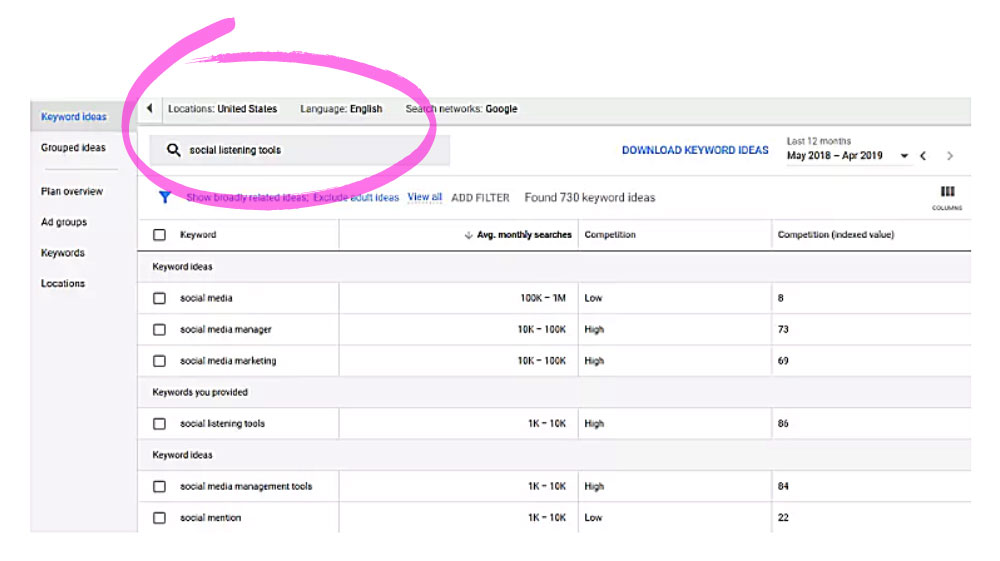Unlocking The Secrets Of Google Keyword Search Ranking
In the ever-evolving digital landscape, understanding Google keyword search ranking is essential for businesses and individuals alike. As the internet continues to expand, so does the competition for online visibility. Without a solid grasp of how keyword rankings work, it can be nearly impossible to gain traction in search engine results. This article delves into the intricacies of Google keyword search ranking, offering insights and strategies that can help improve your online presence.
Effective keyword search ranking not only enhances visibility but also drives traffic to your website. By optimizing content around specific keywords, you can ensure that your material resonates with what users are searching for. This guide will explore various aspects of Google keyword search ranking, from understanding algorithms to implementing best practices for optimization. Whether you are a seasoned marketer or a newcomer to the digital realm, there's something valuable here for everyone.
As we navigate through this article, we will address common questions surrounding Google keyword search ranking, including what techniques can be employed to achieve higher rankings and how to analyze performance effectively. Understanding these elements can empower you to make informed decisions that will lead to long-term success in the digital marketplace.
What is Google Keyword Search Ranking?
Google keyword search ranking refers to the position of a website or webpage in the search engine results page (SERP) when users enter specific keywords. The ranking is influenced by various factors, including content relevance, website authority, and user experience.
How Does Google Determine Keyword Rankings?
Google employs a complex algorithm to evaluate and rank web pages. Several key factors play a role in this process:
- Content Quality: High-quality, relevant, and original content is favored.
- Keyword Usage: Strategic placement of keywords within the content, titles, and meta descriptions is essential.
- Backlinks: Quality backlinks from reputable sites enhance authority.
- User Engagement: Metrics such as bounce rate and time on site can impact rankings.
What Are the Main Components of Effective Keyword Research?
To improve your Google keyword search ranking, conducting thorough keyword research is crucial. Here are the main components to consider:
How Can You Optimize Your Content for Google Keyword Search Ranking?
Optimizing content effectively is paramount for improving your Google keyword search ranking. Here are some strategies to consider:
What Role Does On-Page SEO Play?
On-page SEO involves optimizing individual pages to rank higher and earn more relevant traffic. Key elements include:
- Title Tags: Incorporate primary keywords in the title.
- Meta Descriptions: Write compelling descriptions that include keywords.
- Header Tags: Use H1, H2, and H3 tags appropriately for structure.
- Image Alt Text: Optimize images with descriptive alt text to improve visibility.
How Important is Mobile Optimization for Search Ranking?
With the increasing use of mobile devices, Google prioritizes mobile-friendly websites. Ensuring your site is responsive and easy to navigate on mobile devices can significantly impact your Google keyword search ranking. Key aspects of mobile optimization include:
What Metrics Should You Monitor for Google Keyword Search Ranking?
Monitoring key performance indicators (KPIs) is vital to understanding your keyword ranking success. Important metrics include:
- Organic Traffic: Analyze the number of visitors coming from search engines.
- Keyword Rankings: Track your position for targeted keywords over time.
- Bounce Rate: Measure the percentage of visitors who leave after viewing one page.
- Conversion Rate: Evaluate how many visitors complete desired actions, such as making a purchase.
What Tools Can Help You Track Keyword Ranking?
Numerous tools are available to assist in tracking and analyzing Google keyword search ranking. Some of the most effective options include:
How Often Should You Update Your Content for Better Rankings?
Updating content regularly can contribute to improved Google keyword search ranking. Search engines favor fresh, relevant content. Consider the following tips:
- Regular Reviews: Periodically assess existing content for accuracy and relevance.
- Incorporate New Keywords: Add new keywords as trends evolve.
- Expand Existing Content: Provide additional information to enhance value for readers.
What Are Common Mistakes to Avoid When Focusing on Keyword Ranking?
Being aware of common pitfalls can save time and effort. Here are some mistakes to avoid:
In conclusion, mastering Google keyword search ranking is a multifaceted endeavor that requires a blend of strategic planning, ongoing optimization, and performance monitoring. By understanding the intricacies of keyword research and staying updated on best practices, you can position yourself for success in the competitive digital space. Whether you are optimizing a personal blog or a business website, the principles discussed in this article will serve as a solid foundation for enhancing your online visibility and driving traffic to your site.



ncG1vNJzZmixn6PAtr7IZqWeq6RjsLC5jpycpZ2Sp7a1xZBtZqCnn5y5pnnKnrCwp6KZerSxwKuaoWWilrustc2gZaGsnaE%3D